Three months after I was paralysed, I was back at work
- Published
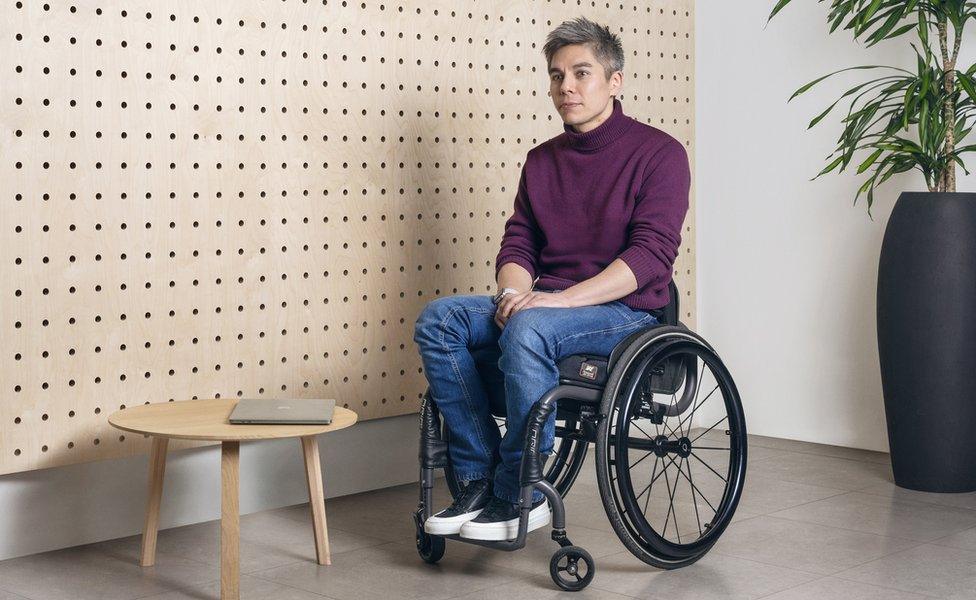
Hiroki Takeuchi was off work for just three months after his accident
The BBC's weekly The Boss series profiles different business leaders from around the world. This week we speak to Hiroki Takeuchi, chief executive of financial technology business GoCardless.
Hiroki Takeuchi had just got married when he was involved in a cycling accident that left him with a life-changing disability.
The then 30-year-old was cycling around London's The Regent's Park back in September 2016 when he collided with a car, crushing his spinal cord. It left him paralysed from the waist down.
"My poor wife, we'd only been married for three weeks," he says.
As Hiroki recovered in hospital, his other concern was for his company GoCardless. He and two friends had set up the business back in 2011, but Hiroki had been made sole chief executive in 2015.
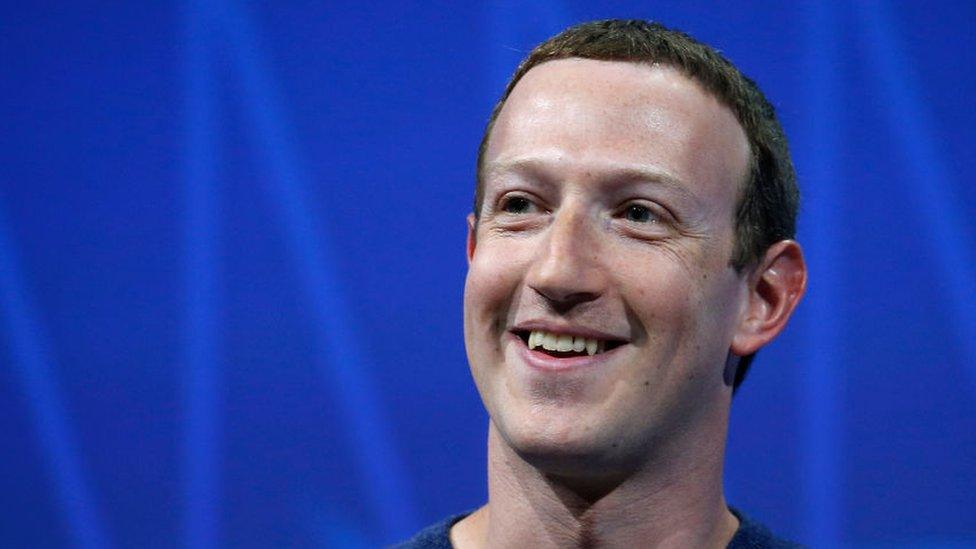
Hiroki was able to get start-up tips from Facebook's Mark Zuckerberg
"Fortunately, we had built enough of a team, and a momentum, that they could carry on without me being there day-to-day," says Hiroki.
"Even after three months away the business continued to do well, and that was good to see - it's nice to know something you've built has got a life of its own."
Returning to work just 12 weeks after the accident, Hiroki has continued to successfully grow London-based GoCardless. Its technology enables companies to more easily collect direct debit payments from customers.
It is one of those businesses that most of us have never heard of, but many of us use without knowing it. More than 40,000 firms around the world now utilise GoCardless' technology to process more than £7.5bn ($9.4bn) of payments per year.
Hiroki, who is half Japanese and half English, grew up in Swindon, in the south of England. After studying maths at Oxford University he initially joined the London office of management consultancy McKinsey in 2008.
But keen to set up his own company, Hiroki started to explore possible ideas with an old university friend called Tom Blomfield, and McKinsey colleague Matt Robinson.
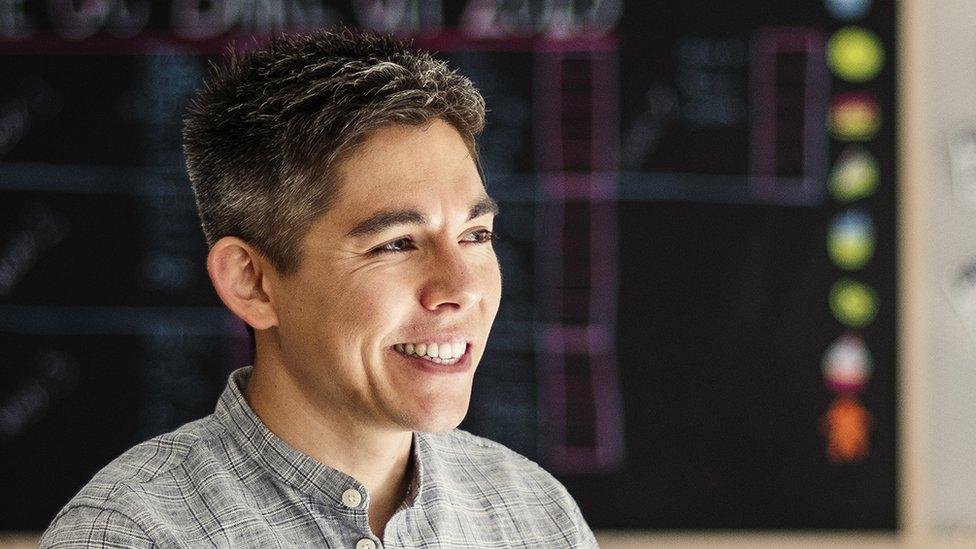
Hiroki says that he was able to adapt after the accident
They decided to look at problems in the world of finance, and identified that electronic payment systems could be improved. "We realised that all these payment systems were a bit broken," says Hiroki.
As the three men continued to work on their idea, in 2011 they landed a spot on a prestigious start-up support programme in Silicon Valley called Y Combinator. Hundreds of young entrepreneurs around the world apply to join the three-month long scheme each year, but only a small percentage are chosen.
Hiroki says it introduces you to some famous names, and their unvarnished advice. "You would have these weekly dinners where you would get the likes of Mark Zuckerberg, or one of the Airbnb founders, telling you first-hand what their journeys were like.
"They were very open - you didn't get the PR version of it."
Deciding to focus the business on helping small firms collect direct debit payments more easily, GoCardless was born, and the three co-founders returned to the UK with an initial $1.5m in funding from Silicon Valley investors. Hiroki says this was the moment he knew that the business was real.
Investing heavily in staff, with 90% of them being tech hires, Hiroki says they were fortunate when it came to getting their first customers.
"One of the big lucky breaks we had early on is that we got introduced to Duane Jackson, who was the CEO and founder of Kashflow, an accounting platform," says Hiroki.
"He had 25,000 small businesses doing accounting through this platform, and he was looking for exactly the solution we were providing."
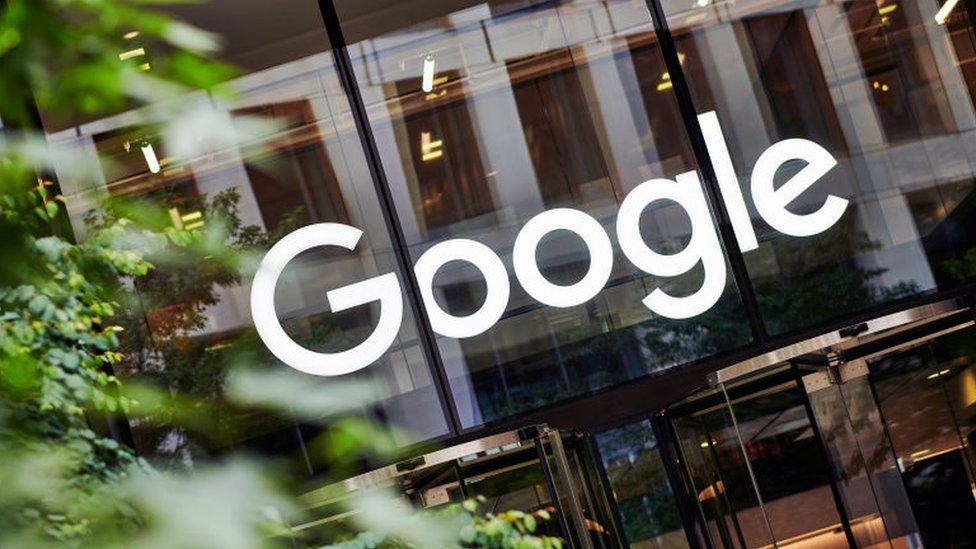
Google is an investor in GoCardless
The GoCardless team hadn't even fished their product at the time, so they worked closely with Kashflow to build the first version. They then got access to all Kashflow's customers.
Like most new businesses, Hiroki says they learned as they went along: "You think you know what you're doing, but you basically never do.
"It's about how you learn from those mistakes and correct them though. Everything from marketing in the first place, to how our technology was built - you have to keep reinventing things."

More The Boss, external features:

As GoCardless grew, Tom Blomfield realised it wasn't his passion, so he left in 2013 to launch mobile bank Monzo. Matt Robinson then departed in 2015, as he and Hiroki realised that the business only needed one leader.
"We needed a leader, it could have been Matt or me, but we weren't going to report to each other," says Hiroki. "But with one of us taking that role we knew that one of us would have to step back."
Sankar Krishnan, a banking and capital markets expert at French consultancy group Capgemini, says that GoCardless has been successful in "addressing the historic business pain points [around] managing cash flow".
He adds: "It's a practical tool that allows businesses to utilize the advantages of direct debit platforms, wherein one is able to pay and collect with ease from any bank or corporation."
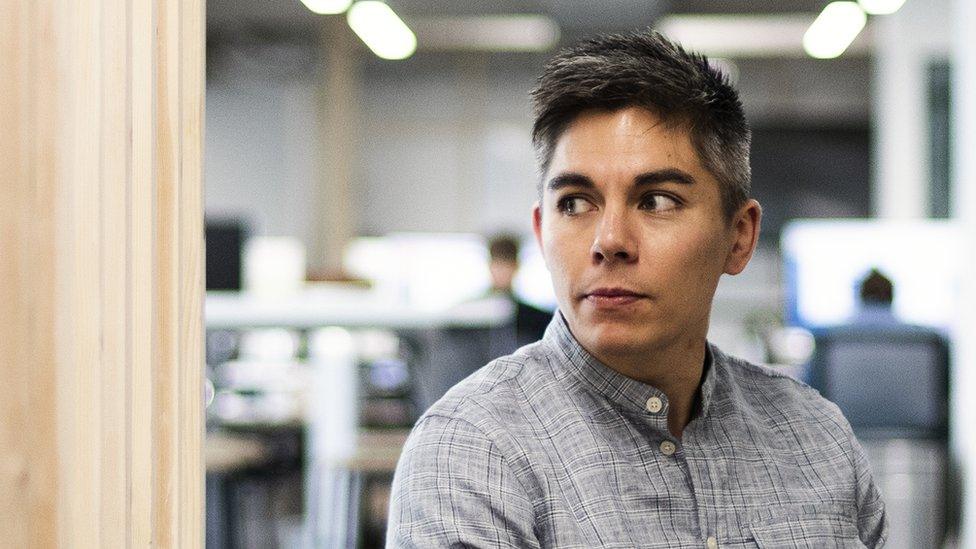
Hiroki is now expanding the business into the US
Today GoCardless employs 340 staff globally, with overseas offices in France, Germany, and Australia. In February of this year it gained a further $75m of investment, including funds from GV, the investment arm of Google's parent company Alphabet.
GoCardless plans to use this additional funding to expand into the US later this year. It has now raised $123m of investment in total.
While the 33 year old says that the cycling accident "obviously changed my life", he has "been able to adapt to it in a way that I don't have to give up everything that I had before".
"Of course you have to be a bit more organised, especially if you want to go on holiday or do something spontaneous," he adds. "But my injury was low enough that I still have a lot of independence, and I still have full use of my arms and upper body."
Hiroki says that despite the success of the business so far, he is still learning every day. "I always think of myself as the least experienced person in the business. I've never managed a team this size [before], so you're constantly learning."